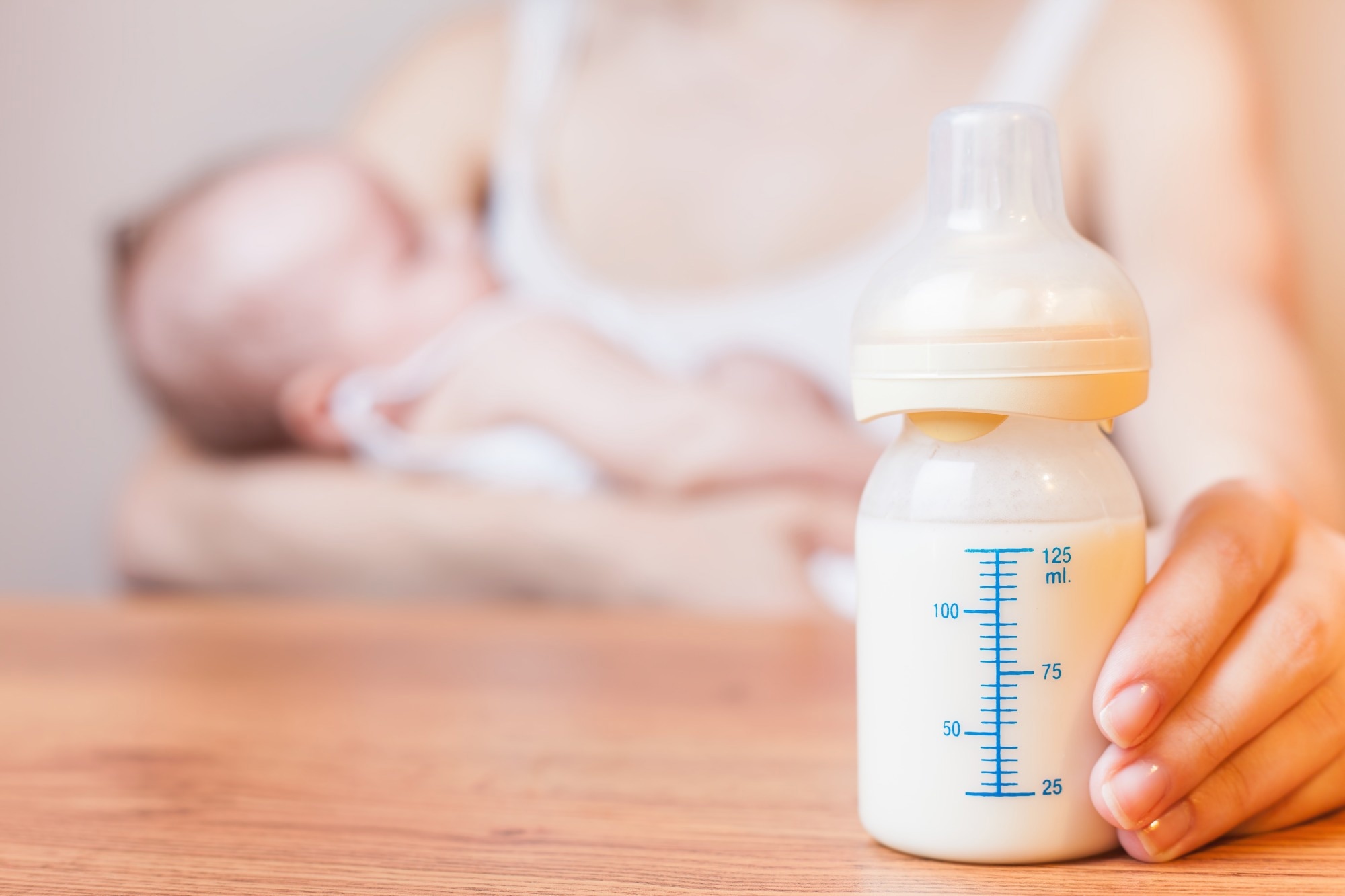Human milk (HM) contains a wide range of biologically active components that include estrogens and progesterone. Although maternal estrogens and progesterone levels drop rapidly after birth, they remain detectable in HM across lactation. Not many studies have explored the impact of HM estrogens and progesterone on the growth and health of breastfed infants. Therefore, it is imperative to understand the factors that affect the levels of these hormones in HM.
Recently, scientists reviewed existing literature to elucidate how naturally occurring estrogens and progesterone in HM affect infant growth. They also explored the factors that impact the levels of these hormones in HM. This review is available in the journal Food Chemistry.
In this study, all relevant articles were obtained from the PubMed database, and the publications ranged from 1979 to 2022. A total of 1,767 articles were identified from the initial search. This review excluded conference abstracts, letters to the editor, commentaries, reviews, and editorials. Finally, twenty articles were considered in this review.
 Oestrogens and Progesterone in Human Milk and Their Effects on Infant Health Outcomes: A Narrative Review. Image Credit: Pavel Ilyukhin / Shutterstock
Oestrogens and Progesterone in Human Milk and Their Effects on Infant Health Outcomes: A Narrative Review. Image Credit: Pavel Ilyukhin / Shutterstock
Estrogens and Infant Outcomes
Estrogens are 18-carbon steroids derived from cholesterol and are predominantly synthesized by the ovaries and placenta in women. HM estrogens are derived from both maternal circulation and local production. Some of the common naturally occurring estrogens detected in HM are estrone, estradiol, and estriol.
No studies have elucidated the exact relationship between HM and maternal serum estrogen concentration. However, certain studies have pointed out that estrone glucuronide levels are significantly higher in HM than in serum, while free estrone and estriol glucuronides were considerably higher in serum. Interestingly, a positive correlation between maternal soy intake and HM estriol was observed. This finding indicates that dietary phytoestrogens may elevate estrogen production.
In vivo experiments using rodents revealed that early-life administration of estrogens influences the hypothalamic-pituitary axis and sexual precocity. Therefore, human research is required to understand the association between HM estrogens with infant growth and development. A previous study has indicated that HM estradiol is positively linked with an infant's developmental score, which includes eye movement, face recognition, visual tracking, response to and production of sound, neck and feet movements, and grasping objects by hand.
Progesterone and Infant Outcomes
Progesterone is a 21-carbon steroid hormone derived from cholesterol. During menstruation, this hormone is produced by the corpus luteum in the ovary, and during pregnancy, it is synthesized by the placenta. The progesterone levels in HM and maternal serum were found to decline rapidly within three days of both.
A positive correlation between progesterone concentrations in maternal serum and HM was found, which indicated that HM progesterone is derived from maternal circulation. Dietary intake affects HM progesterone. For instance, a maternal diet containing meat, eggs, and vegetables is negatively associated with HM progesterone.
A negative correlation between HM progesterone concentration and infant development score was recorded at 1 and 6 months postpartum. For instance, infants' weight has been negatively correlated with HM progesterone at 6 months. However, more studies are required to assess the impact of HM progesterone on the growth and development of an infant beyond 6 months period. Several studies have shown that progesterone has considerable psychotropic effects.
Phytoestrogens and Infant Outcomes
Phytoestrogens, also referred to as dietary estrogens, are estrogenic compounds present in plant sources, such as cereals, flaxseed, and soybean. These are polyphenolic compounds that resemble estradiol. A limited number of studies have been able to estimate HM phytoestrogens.
HM phytoestrogen levels were found not to be associated with maternal age, mode of delivery, BMI, or preterm delivery. Mothers who consumed soy drinks daily exhibited higher HM daidzein and genistein. This finding revealed that maternal diet is a crucial factor linked to phytoestrogen levels. This also indicates that infants' exposure to HM phytoestrogen differs between individuals.
Animal models have shown that early exposure to dietary phytoestrogens influences the reproductive system. In addition, HM phytoestrogen also induces thymic changes and impairs immune function in the offspring. Soy formula during infancy has been associated with endometriosis, altered age at menarche, and uterine fibroids. It has also been identified as a risk factor for decreased testis size and reduced testosterone levels in humans. In the future, researchers must assess the levels of phytoestrogens intake and its impact on male and female infants.
Mycoestrogens and Infant Outcomes
Mycoestrogens are fungal secondary metabolites that mimic natural estrogen in the body. One of the most common mycoestrogens is zearalenone (ZEN) which is produced by Fusarium sp. Many plants, such as corn, wheat, and rice, infected with fusarium species, when ingested by animals and humans, may absorb mycoestrogens. This could be the pathway to transfer to HM.
An infant's ingestion of mycoestrogens via HM has adverse effects, including slower growth and abnormal pubertal development. Serum-free ZEN concentration has been positively correlated with maternal BMI. In vivo experiments have revealed that ZEN exposure causes disruption of pituitary hormone production, altered immune function, and reproductive dysfunction. During pregnancy, maternal ZEN exposure has an adverse effect on the placenta and can lead to hemorrhage, stillbirth, and impaired fetal growth.